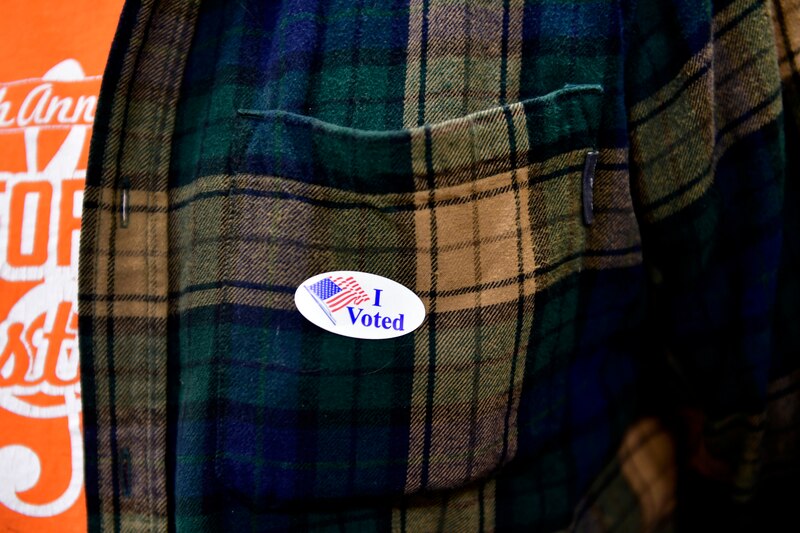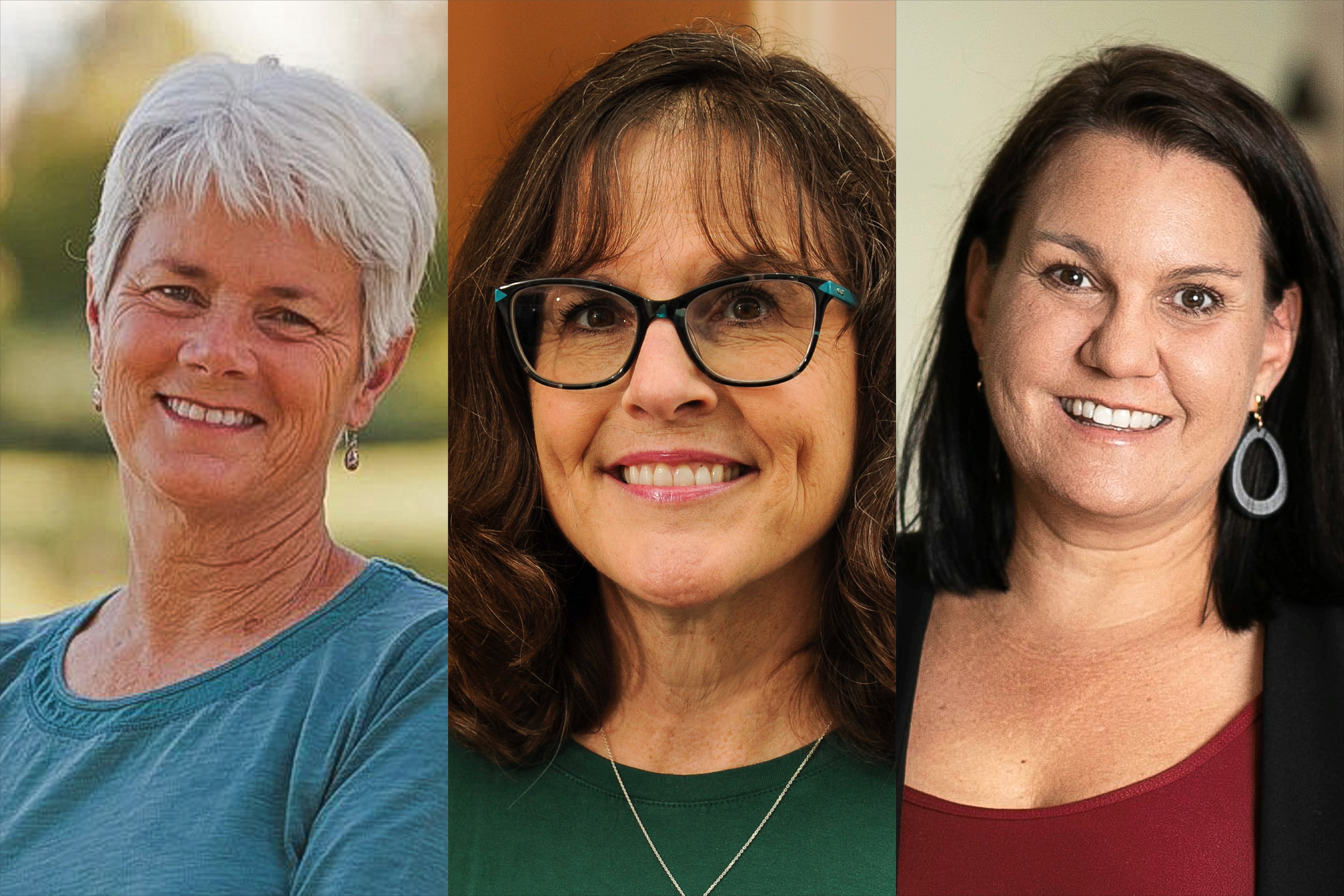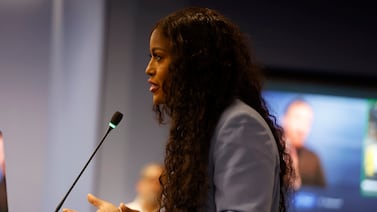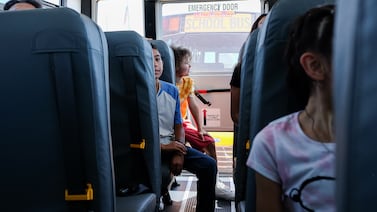A three-candidate slate backed by the Jeffco teachers union coasted to victory Tuesday, easily beating a slate of conservative candidates opposed to the current school board majority.
The winning slate includes Danielle Varda, Paula Reed, and Mary Parker. Varda won 58% of the vote in the District 1 race, beating out opponent Jeffrey Wilhite, who got 42% of the vote. Parker won the District 5 seat with 55% of the vote, prevailing over Kathy Miks, who got 45% of the vote. In the District 2 race, Reed won just over 50% of the vote, defeating Theresa Shelton, who earned 38%, and David Johnson, a candidate not affiliated with a slate, who got less than 12%.
Three of five seats on the Jeffco school board were up for grabs in Tuesday’s election.
The three winning candidates celebrated at a watch party at Cannonball Creek Brewing Company in Golden on Tuesday evening.
Varda, the founder of a health technology startup and parent of three children who attend district schools, said the win felt very emotional.
“I cried for a while,” she said. “To know that many people put their faith in you … It’s just overwhelming.”
Reed, a former high school teacher in the district, said, “We’re an incredibly strong slate. You’re getting an educator ... You’re getting a data scientist … and you’re getting a phenomenal human resources expert.”
Parker owns a human resources consulting business with her husband.
All three candidates said the the first thing the board needs to do is ensure adequate staffing in the state’s second largest district.
“We cannot be cancelling bus routes because we don’t have enough bus drivers,” Reed said. “We cannot be heading into peak COVID season without substitutes.”

Like districts across the state and nation, Jeffco has struggled this fall to find enough employees to run bus routes, staff cafeterias, and fill other vacancies.
Parker said she hopes to bring her human resources skills to bear in addressing staff shortages in the district.
“I want to be creative,” she said. “I want to figure out ways we can be a step ahead, be proactive to fill the slots that we’re missing.”
A union-supported board majority has governed the 80,000-student district since a recall election in 2015. The union-supported candidates have had large sums of money behind their campaigns — much more than their opponents.
In 2019, one board member not supported by the union, Susan Miller, was elected. In addition to Miller, board member Stephanie Schooley, who was backed by the union, will remain on the board for two more years. Departing members include Board President Susan Harmon and Brad Rupert, both union-supported, and Rick Rush, who was appointed to fill a vacant seat just under a year ago.
Members of the conservative slate said on the campaign trail they wanted better financial management and more emphasis on improving test scores. Some of the conservative candidates also criticized the district’s COVID mitigation measures and questioned the benefit of requiring children to wear masks.
The new board will be responsible for overseeing a new superintendent, a pandemic recovery plan, and the rollout of a new elementary literacy curriculum. It will also have to address declining enrollment at some district schools and decide whether to close any schools.
Parker said she sees an opportunity to offer child care for infants and toddlers at schools with extra space. She suggested additional career and technical education programs could go in low-enrollment schools, especially those that are far away from the district’s existing career and technical education campuses.
Varda said she also wants to focus on the youth mental health crisis coming out of the pandemic.
“I think this right now is something we haven’t seen in the schools before at this level,” she said.
“We can’t ignore it and we can’t act like the schools don’t have a role in the mental health and wellness of our kids.”
Jeffco Public Schools District 1 Results
| Winner | Candidate | Votes | Percentage |
|---|---|---|---|
| Jeffrey Wilhite | 65,483 | 41.5% | |
| X | Danielle Varda | 92,173 | 58.5% |
Jeffco Public Schools District 2 Results
| Winner | Candidate | Votes | Percentage |
|---|---|---|---|
| David C. Johnson | 18,306 | 11.7% | |
| Theresa Shelton | 59,840 | 38.2% | |
| X | Paula Reed | 78,638 | 50.2% |
Jeffco Public Schools District 5 Results
| Winner | Candidate | Votes | Percentage |
|---|---|---|---|
| Kathy Miks | 69,764 | 44.6% | |
| X | Mary Parker | 86,664 | 55.4% |





